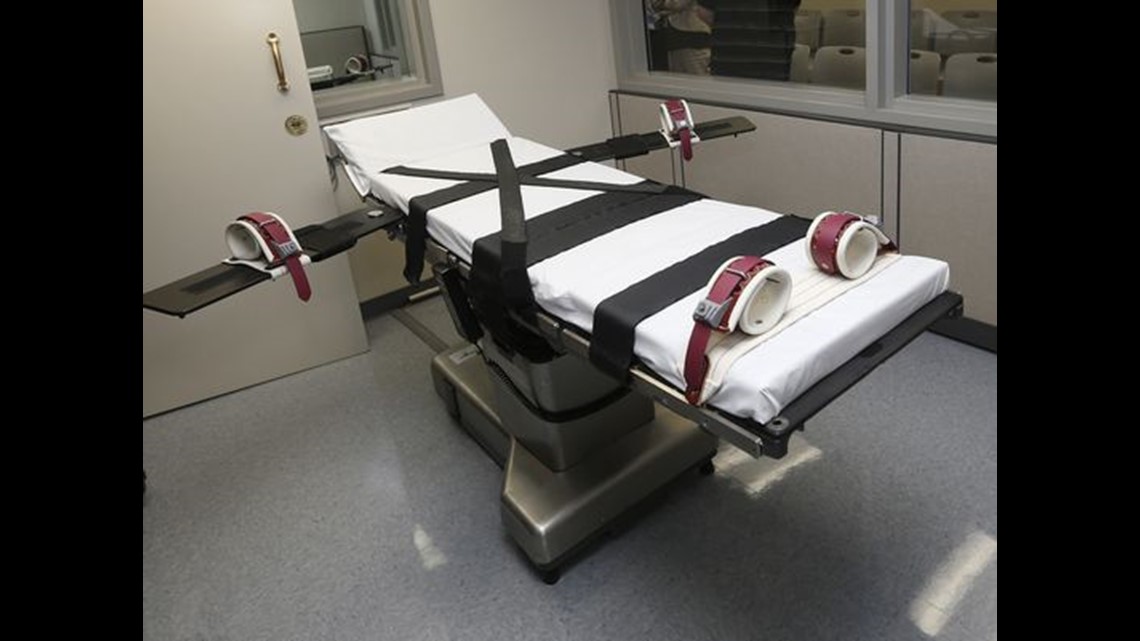Tennessee cannot execute death row inmates using a controversial three-drug mix because doing so would violate constitutional bans on cruel and unusual punishment, lawyers argue in a new lawsuit filed Tuesday.
The lawsuit, filed in Davidson County Chancery Court by lawyers representing 33 death row inmates, comes days after Tennessee Attorney General Herbert Slatery moved to push the state's largest ramp up of executions in nearly 80 years.
"What Tennessee is proposing to do amounts to torturing prisoners to death, which we know because we’ve seen this protocol fail in other states,” said Supervisory Assistant Federal Public Defender Kelley J. Henry, an attorney for the death row inmates.


“You cannot break the law in order to enforce the law, which is what this new lethal injection protocol does...To use this torturous protocol requires pharmacists, doctors, and prison officials to act illegally.”
The filing likely delays any potential executions. Billy Ray Irick, a 59-year-old Knox County man convicted of the 1985 rape and murder of a 7-year-old girl, is set to be executed Aug. 9. While he is the only offender essentially without other appeals who is scheduled to die this year, last week Slatery asked the Tennessee Supreme Court to set eight executions before June 1.


"The state, through the Department of Correction, is required by law to carry out executions by lethal injection; however, its ability to do so after June 1, 2018 is uncertain due to the ongoing difficulty in obtaining the necessary lethal injection chemicals," reads a statement from the office of the attorney general.
The last time Tennessee executed at least eight people in a single year was 1939, according to Department of Correction records. The last execution in Tennessee was 2009.
Lethal injection is the primary means of carrying out the death penalty in Tennessee, although the electric chair is also legal. The state had used pentobarbital, a barbituate, but manufacturers have largely stopped selling the drug to anyone using it for executions.
In January, the Tennessee Department of Correction adopted a new protocol for lethal injections, relying on a three-drug mixture intended to put an offender to sleep before stopping the lungs and heart.
In practice, executions using the drugs in other states left offenders in clear, protracted agony, if not alive. During executions in Oklahoma, Arizona, Ohio and elsewhere, midazolam — the drug intended to render the offender unconscious — failed to work.
More: Executions set to resume in Tennessee: Three death row inmates scheduled to die
Tennessee corrections officials knew this could be a problem, according to documents obtained by the USA TODAY NETWORK-Tennessee that are also cited in the lawsuit. In September, a supplier noted potential problems with midazolam in an email to Tennessee prison officials in
"Here is my concern with midazolam...it does not elicit strong analgesic effects. The subjects may be able to feel pain from the administration of the second and third drugs. Potassium chloride especially," wrote the supplier in an email.
"It may not be a huge concern but can open the door to some scrutiny on your end."
The second drug in the mixture, vecuronium bromide , essentially paralyzes the offender. That means the offender would still be conscious but potentially appear as though they are not feeling pain.
The third drug, potassium chloride, causes a pain similar to "being burned alive from the inside," according to attorneys for the inmates.
Lawyers want the chancery court to declare the three-drug mixture unconstitutional. It's only the latest legal challenge to Tennessee's lethal injection methodology.
In 2017, the Tennessee Supreme Court rejected a filing by Henry and other lawyers seeking the court to declare the use of pentobarbital unconstitutional.
"The intended result of an execution is to render the inmate dead,” wrote Chief Justice Jeffrey Bivins in an opinion at the time.
There are currently 60 people on death row.

